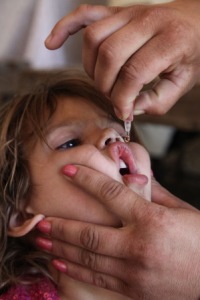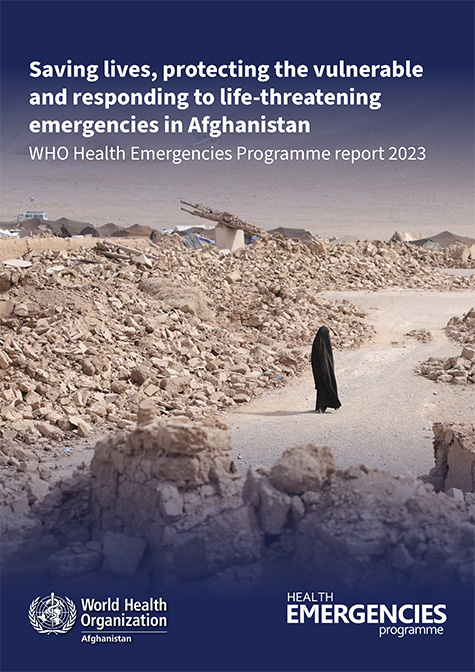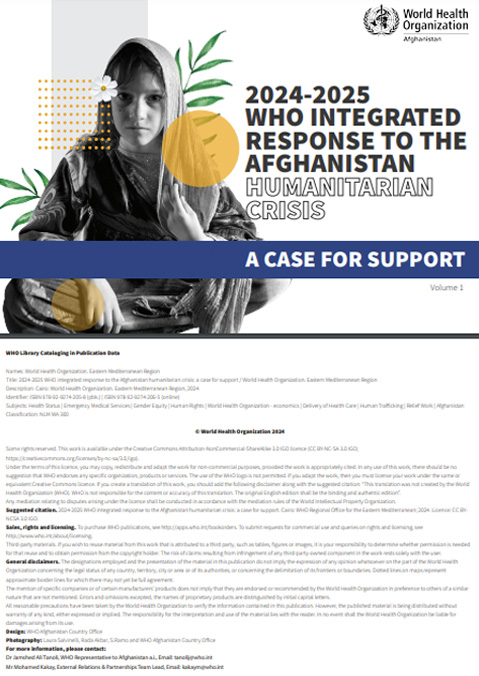 Child receiving an oral polio vaccineKABUL 3 September 2014 – WHO, together with the Ministry of Public Health and UNICEF, has successfully completed a nationwide polio immunization campaign in all districts of Afghanistan’s 34 provinces. The national immunizations days (NIDs) campaign was carried out during three days between 17 and 19 August.
Child receiving an oral polio vaccineKABUL 3 September 2014 – WHO, together with the Ministry of Public Health and UNICEF, has successfully completed a nationwide polio immunization campaign in all districts of Afghanistan’s 34 provinces. The national immunizations days (NIDs) campaign was carried out during three days between 17 and 19 August.
A total of 8 960 354 children under the age of 5 were targeted in the campaign that covered all areas of the country, even districts in southern areas where vaccination campaigns have not been conducted since March this year. Deworming Albendazole tablets were also distributed to children aged two and above.
“The latest round of polio vaccinations using the trivalent oral polio vaccine (tOPV) was extremely successful in terms of reach and coverage,” said Dr Arshad Quddus, team leader of WHO Afghanistan’s Polio Eradication Initiative programme. “Millions of children benefited from this campaign that aims to save children from lifelong paralysis or death. More than 53 000 volunteer vaccinators, close to 5000 supervisors and 800 monitoring staff around the country contributed to this effort.”
Polio, a virus that enters the body through the mouth and multiplies in the intestines, attacking the nervous system, is highly infectious, and can cause irreversible paralysis. During four yearly immunization days, WHO and its partners vaccinate around 9 million children under 5 against polio through a house-to-house approach. Four subnational immunization days are organized annually, each round reaching around 3.5 million children. WHO also provides support to maintain a surveillance system to detect cases of acute flaccid paralysis through a countrywide network of international and national polio officers.
The next NIDs campaign is scheduled for October while sub-national immunization days will be conducted in September in the southern, southeastern and western regions of Afghanistan.
“WHO stands committed to supporting the Government of Afghanistan to rid the country of this devastating disease. In addition to the national and sub-national immunization days campaigns, we continue to carry out cross-border vaccination activities and have deployed permanent vaccination teams to reach children in areas that are difficult to access,” said WHO Country Representative Dr Rik Peeperkorn. “Each and every child can be protected from this preventable disease, and we are accelerating our joint efforts to make Afghanistan polio-free.”
Currently, there are eight confirmed polio cases in Afghanistan. During 2013, 14 confirmed polio cases were reported, representing a 62% reduction from 2012. In addition to Pakistan and Nigeria, Afghanistan is one of the three remaining polio-endemic countries in the world.













